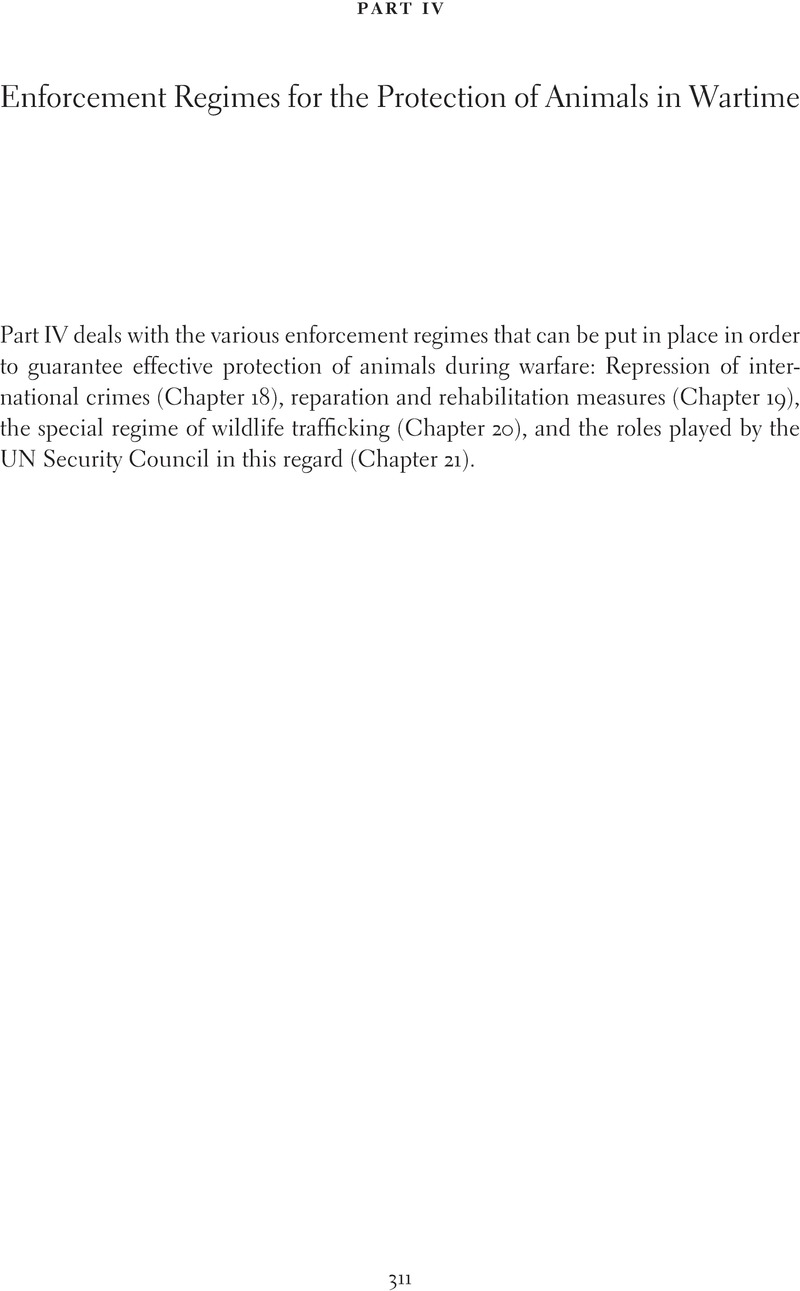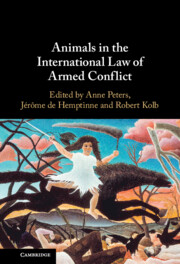Book contents
- Animals in the International Law of Armed Conflict
- Animals in the International Law of Armed Conflict
- Copyright page
- Contents
- Contributors
- Forewords
- Acknowledgements
- Abbreviations
- Part I The Need for Protecting Animals in Wartime
- Part II The Protection of Animals in International and Non-international Armed Conflicts
- Part III The Protection of Animals in Specific Situations
- Part IV Enforcement Regimes for the Protection of Animals in Wartime
- Part V Towards Better Protection of Animals in Wartime
- Index
- References
Part IV - Enforcement Regimes for the Protection of Animals in Wartime
Published online by Cambridge University Press: 06 October 2022
- Animals in the International Law of Armed Conflict
- Animals in the International Law of Armed Conflict
- Copyright page
- Contents
- Contributors
- Forewords
- Acknowledgements
- Abbreviations
- Part I The Need for Protecting Animals in Wartime
- Part II The Protection of Animals in International and Non-international Armed Conflicts
- Part III The Protection of Animals in Specific Situations
- Part IV Enforcement Regimes for the Protection of Animals in Wartime
- Part V Towards Better Protection of Animals in Wartime
- Index
- References
Summary

- Type
- Chapter
- Information
- Animals in the International Law of Armed Conflict , pp. 311 - 382Publisher: Cambridge University PressPrint publication year: 2022



